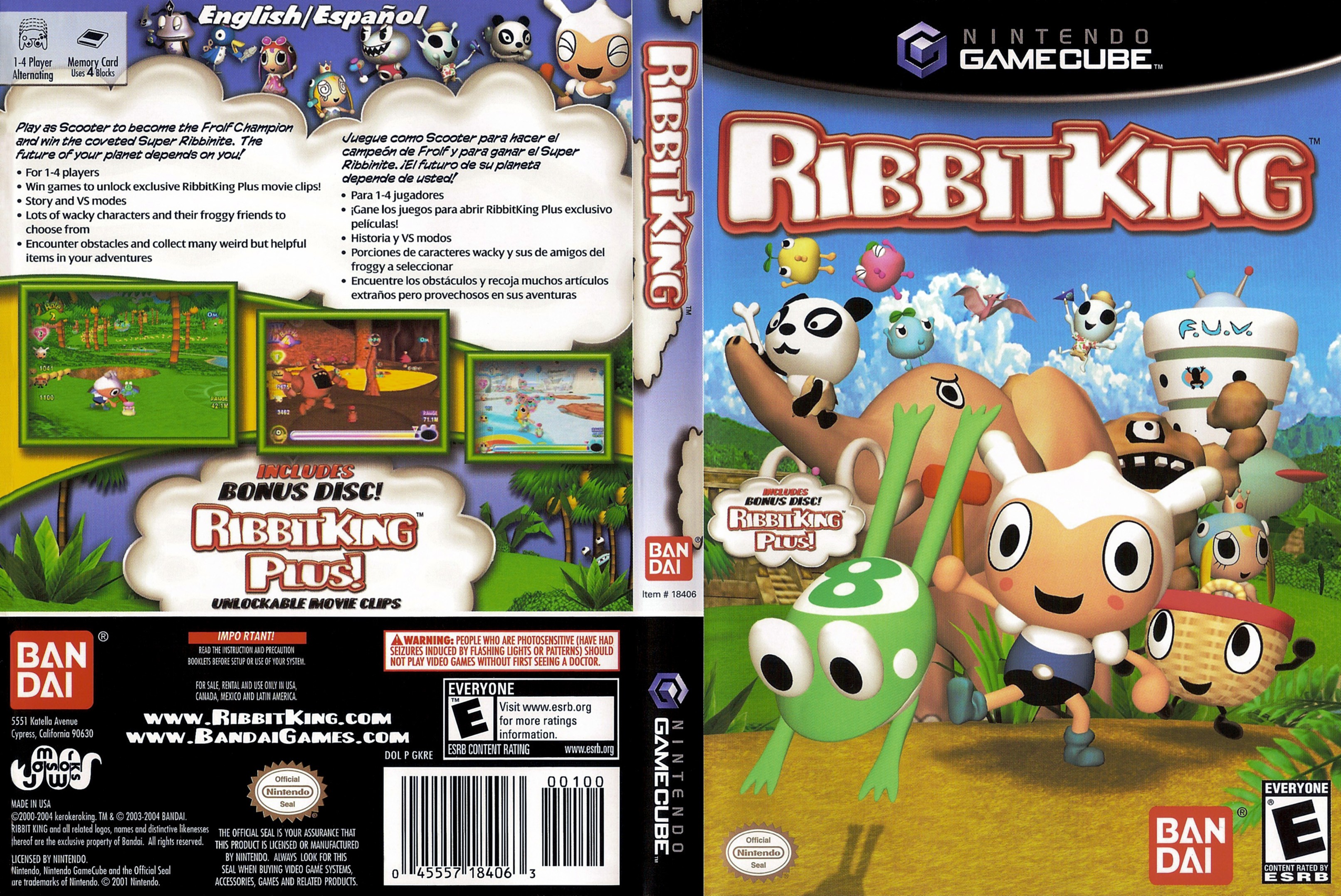6 /10 1 Votes
Composer(s) Yūsuke Takahama Genre Sports game | 60% Metacritic Artist(s) Yosuke Kihara Initial release date 11 July 2003 | |||||||||||||||||||||||||||||||||
 | ||||||||||||||||||||||||||||||||||
Similar Bandai games, Sports games | ||||||||||||||||||||||||||||||||||
Ribbit king a round of frolf part 1 game grumps vs
Ribbit King is a 2003 sports video game developed by Infinity and Jamsworks and published by Bandai for the Nintendo GameCube and PlayStation 2. The game is based on the fictional sport of Frolf, which is a golf-like game that is played with frogs. The frogs sit on catapults, which the player whacks with a hammer to send the frog flying into the air. It is the successor to Kero Kero King, released only in Japan in 2000 for the PlayStation.
Contents
- Ribbit king a round of frolf part 1 game grumps vs
- Gameplay
- Characters
- Ribbit King Plus
- Kero Kero King
- Reception
- References
Gameplay
The objective is to earn the most points possible by landing the frog in the course's hole in the quickest time possible. Players can also earn points by sending their frogs through various spheres scattered through the level. In addition, they can score points by having their frogs eaten by giant snakes, by having their frogs swim, or by any number of other things.
North American versions of Ribbit King come packaged with a bonus disc called Ribbit King Plus!, which is an assortment of 28 short CGI films about Scooter and his friends. These films are unlocked during the main game.
The main character of Ribbit King is a young carpenter named Scooter. Scooter is trying to become the Frolf Champion—or the namesake 'Ribbit King'—and in doing so win the 'Super Ribbinite', a fuel source his planet needs in order to survive. The game also includes such characters as a pile of rocks, a gumball machine, and a kung fu panda named Pan-Pan.
Characters
Ribbit King Plus!
Ribbit King Plus! is the bonus disc included with North American versions of the game, featuring unlockable short animations and requiring saved data on the memory card to be able to view the shorts. It was initially transmitted in Japan as a 30-episode series of shorts on the TV Tokyo weekday morning children's show Oha Suta from 16 June to 25 July 2003 to promote the game, under the title Kero Kero King DX Plus (ケロケロキング デラックス プラス), before being released on a separate DVD at around the same time as the Japanese PlayStation 2 version of the game; however, three of the shorts were dropped from the North American version for unknown reasons. Exclusive to the disc is a two-minute video titled "Special", a montage of the various cutscenes from the story mode set to the main title theme of the game.
Kero Kero King
Kero Kero King (ケロケロキング) is the predecessor to Ribbit King, developed by Amedio and published by Media Factory. It was released exclusively in Japan on 2 November 2000 for the PlayStation.
Reception
The game received mixed reviews upon release. Aggregating review websites GameRankings and Metacritic gave the GameCube version 63.07% and 60/100 and the PlayStation 2 version 63.64% and 58/100. Former GameSpot journalist Ryan Davis gave the PlayStation 2 version 5.9 out of 10, saying that it focused more on the bizarre storyline than the gameplay, while Mary Jane Irwin of IGN gave the GameCube and the PlayStation 2 versions a score of five out of ten.
In Japan, Famitsu gave Kero Kero King a score of 30 out of 40.
